Saturday Soapbox: In Games We Trust?
What the furore over Tomb Raider's "attempted rape" says about the state of story in games.
The offices of Square Enix must be an interesting place right now, as the publisher once again finds itself accused of a battery of charges related to sexualised violence and the defilement of digital women.
It was only two weeks ago that the trailer for Hitman Absolution raised eyebrows and tempers with its PVC-clad sexy nun assassins being lavishly murdered by Agent 47 as the camera lasciviously lingered on both their bodies and suffering. Now they're talking about raping Lara Croft.
Or are they? Developer Crystal Dynamics says producer Ron Rosenberg "misspoke" when he told a journalist that the villains "try to rape" Lara in the new rebooted Tomb Raider game. Kotaku, which published the offending interview, insists that they reported his comments accurately. The internet, as always, erupted.
My initial response to this latest trending scandal was one of weary disgust. Beaten down by tales of sexist abuse at fighting game tournaments, sexist abuse thrown at the makers of a documentary about women in videogames, sexist abuse thrown at Aisha Tyler over her E3 presentation, respected games sites still salivating over booth babes and the depressing chorus of "it's just a game" stirred up by the Hitman debate, hearing the words "rape" and "Lara Croft" in close proximity did nothing to improve my opinion of the industry's level of maturity.
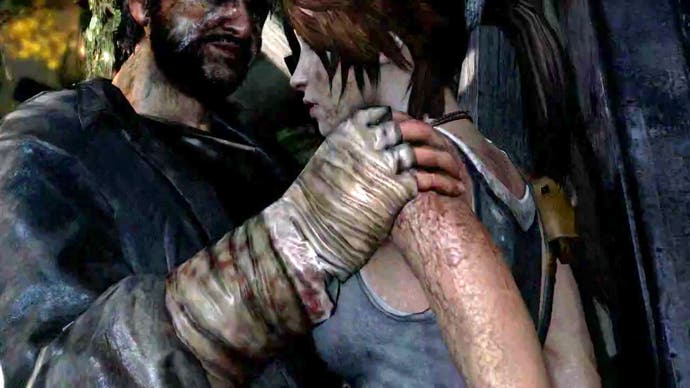
In the scene - which is even described in an IGN video embedded on the official Tomb Raider site as "creepy and awkward" - Lara is chased by a leering bandit who has already knocked her out and tied her up. He recaptures her, presses her up against a wall and begins caressing her, his hand moving towards her groin. She fights back, they struggle, he draws his gun, straddles her and in the melee she blows his head off. It's the first time Lara kills someone, apparently, and we see her afterwards, smeared in blood and sobbing in horror. It is, according to the official trailer description, a "traumatic and character-defining decision."
Watching the trailer, I confess, my immediate reaction was "Oh, that's not as bad as I thought." Attempted rape certainly seemed like a strong term to use for something that takes less than a few seconds, and Crystal Dynamics has been quick to point out that "it never goes any further than the scenes that we have already shown publicly". But that in turn leads to a more disquieting thought. The man may not get to finish what he starts, but that doesn't change the intent behind it.
What we have is an aggressive older man trapping and fondling a young woman. Saying we don't see actual penetration doesn't change the fact that his actions are clearly a sinister prelude to something deeply unpleasant. It's clear where this is going, so at what point do we say that forced groping becomes attempted rape and is therefore no longer suitably entertaining? Pedantically insisting that there's no actual rape in the scene doesn't excuse the context of what we do see, a tiresomely common narrative crutch: the threat of sexual violence to provoke a passive female character into action.
It's worth pointing out that these few moments don't take place in a vacuum. Almost all the marketing for the game up to this point has emphasised the fact that this Lara is younger and more fragile, not the confident and poised adult explorer of 1996. The previous trailers and screenshots have all concentrated on Lara's suffering and fear. Bruised, bloodied and smeared with dirt, it's the sort of imagery more commonly associated with the victims of gritty torture porn horror than the Indiana Jones adventuring we associate with the brand.
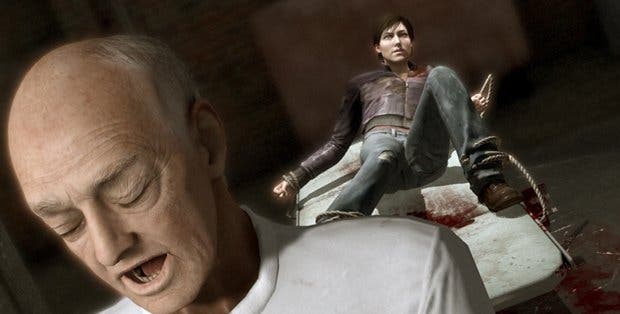
Interviews with the developer talk about young Lara's "baby fat", her undeveloped physique and the way her clothes will be dirtied and torn, but with the reassurance that she'll still be "sexy". They talk of how players don't want to feel like they are Lara, but how they'll want to "protect her". The unspoken assumption that the player is male, and that Lara is defenceless without him, is worrying and rather pathetic. They've taken arguably the only female gaming superstar able to stand toe-to-toe with the bulging muscles of her male counterparts and turned her into a traumatised waif, a digital girlfriend waiting for her joypad-wielding knight in armour.
In trying to get away from the cartoonishly oversized breasts and tight shorts that once defined Lara's popularity, there's a danger that Crystal Dynamics may have ventured into an even more queasy area where female innocence and weakness become a fetish unto themselves. The notion of breaking the hero before rebuilding them is nothing new, but only when the hero is female does this extra layer of vulnerability and degradation seem to become necessary. The obvious question remains: would Nathan Drake, Marcus Fenix or Master Chief be treated this way, or are their heroic qualities assumed to be built-in without the need for groping hands to unlock them?
It's such an emotive subject that it's easy to let the threads tangle and sprawl in dozens of directions at once, most of them leading to bitter arguments. For me, the heart of the debate isn't in whether or not what we see in the Tomb Raider trailer is too much, or whether an iconic character like Lara should be treated this way. The issue goes deeper than that, right to the heart of the medium we love. Unpacking my own particular tangle of threads where this controversy is concerned, I realised that much of it stemmed from the same place.
I don't trust games.
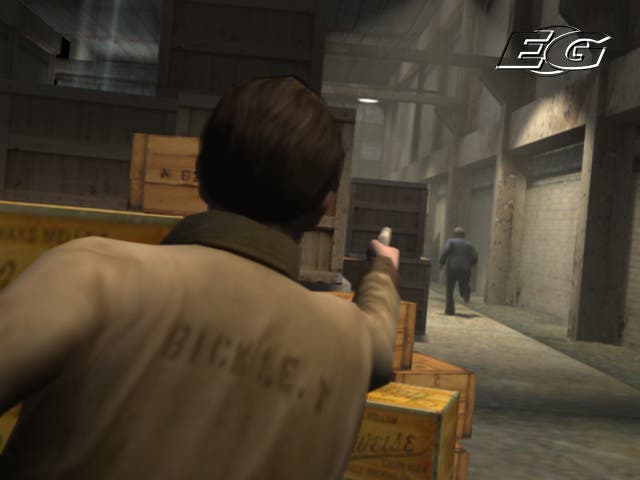
Or rather, I don't trust a game like Tomb Raider with an issue like this. "Films, books and television all tackle rape in stories," goes the common response, "So why can't games?" The answer is that games can tackle rape. Games can tackle rape, race, abortion and whatever hot button topic they choose. But if they want to do it effectively, and without blundering into yet another controversy, they need to grow up first.
Crystal Dynamics' statement on the trailer coverage is that "sexual assault of any kind is categorically not a theme that we cover in this game" but rather than a defence, that really feels like the core of the problem. There is clearly sexual assault in the game, whether it is explicitly shown or heavily implied, yet it's categorically not the theme of the game. So why include it?
This is the problem that too many games face, and it cuts the legs out from any attempt to take gaming seriously as a mature narrative form suited to more than just glorified B-movie plots. It may well be that the new Tomb Raider turns out to be a psychologically rewarding examination of a young woman discovering hitherto unknown strength in the face of dire need, or it could be a dramatic way of explaining how she's able to kill a bunch of dudes by the end.
The trailer contains evidence of both. Certainly, the sight of young Lara enthusiastically putting arrows through throats and blowing up bad guys in slow motion explosions without breaking down in tears suggest that the repercussions of her "traumatic and character-defining decision" aren't going to be allowed to get in the way of our thirst for bloody action.
Narratively ambitious games are too often forced to be both serious drama and lurid B-movie. Regardless of the tale being told, a game must be fun. Niko Bellic can be a melancholy immigrant trying to escape his past one moment and be gunning down 30 cops the next because that's where the entertainment lies in a GTA game. The need to keep cutting away to scenes of mayhem and violence means that any real engagement with story - actual proper story that can be held up against the best of cinema and television - will always be elusive.
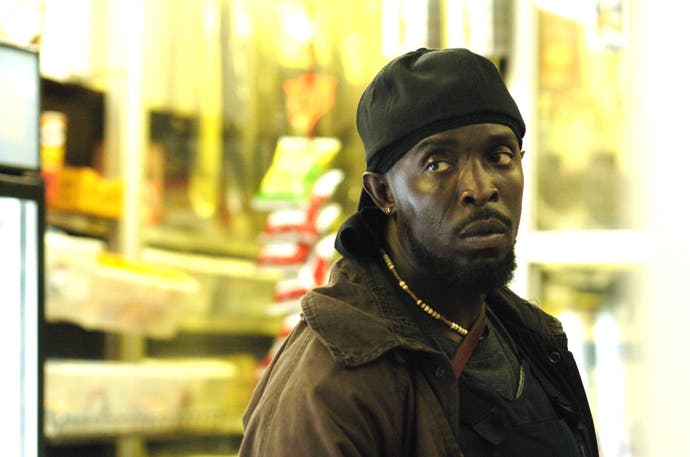
Games are driven by interaction, which often translates to action, which in turn becomes "killing lots of things". As a passive medium, film can simply tell more stories. A film can tackle rape as a prestige drama like The Accused, as social satire like A Clockwork Orange, as grotty exploitation like I Spit On Your Grave or as a confrontational artistic statement like Irreversible. The games that do dare to venture into this territory are always far outside of the traditional games market; the predatory allegory of The Path or the confrontational nihilism of Edmund. Neither sits comfortably between Explosion Racer XII and Super Soldier Blood Rampage V on the high street shelves.
So it's not that games can't tell these stories - it's that the commercial model for games production simply won't support them. The creative spirit is willing, but the industry flesh is weak. Even the high profile titles that aim for loftier narrative goals come unstuck when it comes to issues that resonate beyond genre tropes.
And even in Heavy Rain, where David Cage went out of his way to avoid traditional action gameplay, female lead Madison Paige is strapped down and threatened with torture by a perverted surgeon in a scene straight out of Hostel. That the scene in question has nothing to do with the main narrative, and has no apparent impact on Madison beyond cuts and bruises, illuminates the problem even more clearly.
Time and again, games reveal that they'd rather focus on the visceral than attempt to engage with the emotional. Look at The Sopranos game, which boiled HBO's multi-layered character-based drama down into a series of barely relevant fights and shoot-outs. Consider the Scarface and Godfather games. Decent enough GTA clones with good production values, but do they even attempt to grapple with the themes and complexities of the source material? An even better question: could they?
This is, after all, an industry that thought turning Fight Club into an actual fighting game was a good idea, rather than an act of point-missing on a spectacular scale. Do we even want to consider what the abandoned Taxi Driver third-person shooter would have been like? Could the games industry in its current state produce something as rich and nuanced as The Wire? Or would we find McNulty and Bunk taking on Avon's footsoldiers in endless cover-based shooting galleries? I fear we already know the answer.
This is the hurdle gaming needs to clear if we're not going to roll our eyes and brace ourselves for the shitstorm the next time a blockbuster game brushes up against a serious subject. Lara's close encounter with molestation is worthy of discussion in its own right, but is ultimately just a symptom of a larger, more malignant malaise.
Games, quite frankly, need to grow up, not just in content but also in form, before they can be trusted to tackle subjects with real world power. And for that to happen we, the gamers, need to grow up as well, demanding not just grown-up themes sewn into another first-person shooter but new forms of play that will allow those themes to serve as narrative engines, empowering the game experience with depth and meaning, rather than serving as trite decoration in between headshots. Until that happens, until games can deliver the full span of dramatic potential rather than just the fun stuff, even alluding to subjects like sexual assault in an action game can only end in tears.
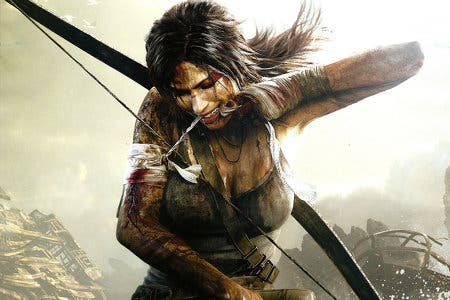


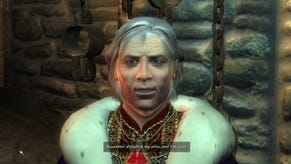

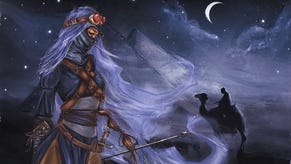



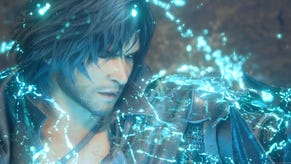

-3-31-23-screenshot.png?width=291&height=164&fit=crop&quality=80&format=jpg&auto=webp)




